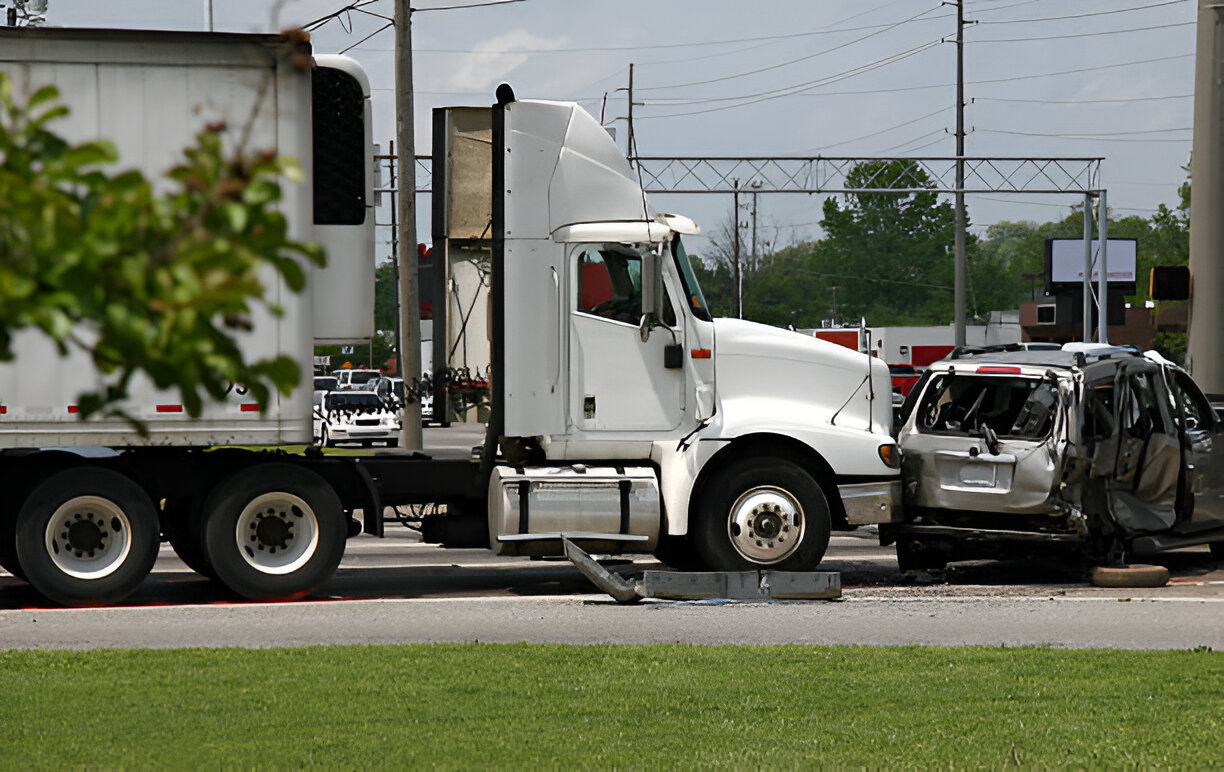
Phoenix is one of the busiest cities in the Southwest, where major highways and interstates cross the area. It's like a transportation hub, with thousands of commercial trucks passing daily. With so much traffic, truck accidents have become common episodes, but the damage caused by those are often devastating. Trucks are massive and carry tons of weight, apart from being loaded goods. When such bulky motor vehicles are met with accidents, these can cause severe injuries and even fatalities, especially for those occupants in smaller passenger vehicles. As a result, legal action is often necessary.
Knowing the most typical truck accident types is essential for taking preventative action and making sure you have the right legal counsel if you are in one.
Truck accidents occur in various ways, depending on the situation and road conditions. The most common kinds of truck accidents that occur on Phoenix roadways are examined in more detail below:
A rear-end truck accident happens when a truck collides with the back of another vehicle. These accidents can be dangerous due to the size and weight of trucks, which create a significant impact even at lower speeds. Distracted driving, tailgating, or a truck driver's incapacity to stop in time because of excessive loads can cause these collisions.
One of the deadliest types of truck accidents is the underride crash. It occurs when a smaller vehicle slides underneath a truck, often shearing off the top of the car. If the passenger car sustains such severe damage, these collisions typically result in fatalities or catastrophic injuries.
An override accident is the reverse of an underride crash. In this situation, a large truck runs over a smaller vehicle, crushing it beneath its weight. This kind of accident happens when truck drivers follow too closely, don't stop in time, or don't see smaller cars in their blind spots.
Due to their high center of gravity, large trucks are prone to rollovers. These accidents happen when a truck driver loses control when driving on slick roads, makes sudden turns, or goes too fast. Rollover accidents can be dangerous as overturned trucks block traffic from other lanes and cause secondary crashes.
Like folding pocketknife, jackknifing occurs when the truck's trailer swings at an acute angle to the car. This situation can happen when a driver loses control on slick roads or applies the brakes abruptly. By blocking multiple lanes of traffic, jackknife accidents result in enormous pile-ups.
One of the most disturbing kinds of crashes is a head-on truck collision. They happen when a truck runs into a car from the other direction. Due to the high speeds, these collisions result in serious injuries or fatalities. This form of collision is seen happening when the driver is fatigued, or distracted.
Sideswipe accidents occur when a truck makes contact with the side of another vehicle. These incidents often happen when truck drivers fail to check their blind spots while changing lanes. A sideswipe collision can force a smaller car off the road or into another lane, increasing the risk of additional accidents.
A T-bone accident occurs when the front of a truck crashes into the side of another vehicle, forming a "T" shape. These accidents happen at intersections when a driver fails to yield or runs a red light. T-bone accidents can be dangerous given the size disparity between trucks and passenger cars.
Trucks transport different types of goods, some of which can be hazardous if not properly secured. When cargo shifts or spills onto the road, it can create serious hazards for other drivers. Unsecured cargo accidents can lead to rollovers, jackknife incidents, or multi-vehicle crashes.
Large trucks require extra space to make turns. When they swing wide to execute a right turn, it can inadvertently trap smaller vehicles between and curb. This type of accident can cause serious injuries to unsuspecting motorists caught in the truck’s path.
Trucks require regular maintenance to stay in safe operating condition. Mechanical failures such as brake malfunctions, tire blowouts, or steering problems can lead to devastating accidents. These failures often fall on the trucking company's accountancy, the truck manufacturer, or a maintenance crew that failed to perform proper inspections.
Large trucks have extensive blind spots on all sides, called "no-zones." When truck drivers change lanes or merge without checking their blind spots, they can collide with smaller vehicles in their path. Awareness of these no-zones can help prevent these types of accidents.
When a truck accident occurs, the consequences can be disastrous. Victims may sustain injuries that change their lives, necessitating ongoing medical care, physical therapy, and rehabilitation. The financial strain of medical expenditures and lost income might be as much as the physical discomfort.
Injuries may include:
It can be difficult to determine who is at fault in a truck collision because there could be several parties involved, such as:
To safeguard yourself and your legal rights in the event of a truck collision in Phoenix, follow these steps:
Truck accidents in Phoenix can create devastating consequences for those involved. You may stay informed and safeguard yourself on the road by being aware of the various kinds of truck accidents, their causes, preventative measures, and who might be at fault in an accident. Do not hesitate to get legal counsel if you have been hurt in a vehicle accident. It is essential to get just recompense for your losses and injuries.